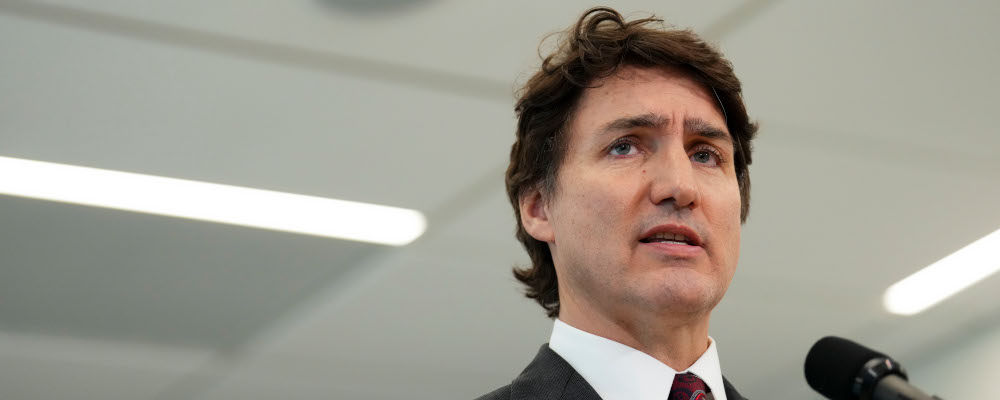This excerpt was originally published at Scotiabank.com.
Canada believes in fairy tales. You see, we’re asked to believe that a national pharmacare program wouldn’t impose any net cost over and above the existing system of provincial plans and private insurers. Believing in that outcome goes against my training as an economist taught not to trust bloated government monopolies.
The PBO (here) had estimated last October that pharmacare would cost the Fed’s $33–38 billion per year as it is fully phased in over fiscal year 24–25 to fiscal year 27–28. They argued it would largely just replace existing spending by provinces and so incremental outlay by all governments would be only $11–13 billion higher per year over the projection period. They then deduct the existing private insurers’ spending that would be replaced by the public plan and arrive at no net incremental impact to spending on drugs in Canada. Presto, it’s magic, a national drug care program suddenly costs nothing! How convenient. Socialism never cost so little.

There are big caveats to their analysis:
1. First, it was assumed there would be a co-payment model but the deal that was just struck last week seems not to feature a co-pay. The purpose of a co-pay is to help ration demand at the point of the user by imposing a relatively small share of the cost on individuals with the rest covered by the plan. It mitigates abuse and waste. Ergo, take-up is likely to be larger than they assumed.
Now obviously when it comes to truly essential drugs for things like cancer treatment or diabetes there isn’t a choice, but what about other drugs? For instance, hasn’t it been understood for many years that wildly excessive prescriptions are doled out for many other medications, like antibiotics, the result of which has been to lessen their effectiveness within the population over time? The lack of a co-pay will make that worse and they could have at least tiered the program. I can see the lack of a co-pay having the effect of inflating many of the other costs for drugs and devices that this deal appears to cover.
2. Also, the scope of the plan seems larger than initially costed and even covers things that private plans often do not. That too would add to the cost. The Feds also indicated they intend to further broaden coverage toward more drugs and devices over time. Also not covered in the costing. The Feds themselves say they don’t know the ultimate cost of the program as it will depend upon negotiations with provinces and territories and presumably drug companies themselves. That’s comforting. Just make it up as you go.
3. Some have noted that the costing assumption that drug prices in Canada will immediately fall with a single-payer system of negotiation is unrealistic. They argue this is unlikely to happen and it’s uncertain how this factor will evolve over time. At a minimum, if this assumption of an immediate decline in drug prices proves to be invalid, then the costs in the early years are likely understated.
My bias is that concentrating purchases in the hands of one single-payer monopoly buyer is not a clearly superior outcome from a price, cost, choice, and quality standpoint. Monopolies can become rather inefficient and folks selling into said monopolies can engage in regulatory capture that drives inefficient outcomes. The Feds are going to be dictating what drugs you can have, and over time I don’t trust that Canadians will have the same choices.
Just ask folks subject to liquor monopolies that are run by self-serving bureaucrats who enjoy many benefits in their positions and drive a system that overcharges and reduces selection. Aren’t we trying to get away from those? I recall reading years ago about the experience of an Australian winery that had to wine and dine (literally…) provincial liquor control board officials for years in order to get listed in that province. Ring ring, hello, you’ve reached the Drug Control Board of Canada.
Just wait until they decide to go on strike too, not that public sector workers hold systems hostage by walking off the job or anything totally crazy like that…
In a bigger picture sense, I’m deeply worried about public policy in my country. Productivity is in a tailspin. A greater share of GDP is spent on here-today-gone-tomorrow current spending by governments and households than in decades. Tax policy is uncompetitive. Business bashing has become commonplace among people who’ve never spent two seconds working in private industry. Competition policy changes face serious criticisms (e.g. here). Changes to labour laws have benefited unions while collective bargaining exercises are driving wage growth to the moon despite collapsing productivity. Major sectors of the economy are literally being taken over by government with recent examples being child care, dental care, and now pharmacare. Do we get better quality outcomes in state-run health and education sectors? Tried visiting an ER lately? ‘nough said.
This excerpt was originally published at Scotiabank.com.




